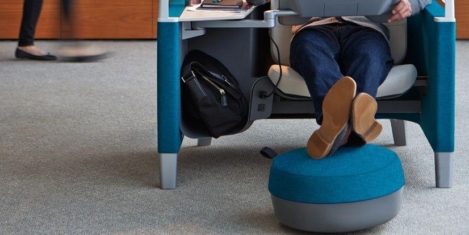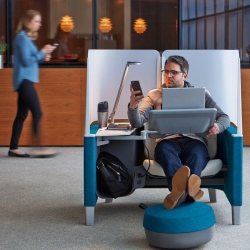To provide the best experiences, we use technologies like cookies to store and/or access device information. Consenting to these technologies will allow us to process data such as browsing behaviour or unique IDs on this site. Not consenting or withdrawing consent, may adversely affect certain features and functions.
The technical storage or access is strictly necessary for the legitimate purpose of enabling the use of a specific service explicitly requested by the subscriber or user, or for the sole purpose of carrying out the transmission of a communication over an electronic communications network.
The technical storage or access is necessary for the legitimate purpose of storing preferences that are not requested by the subscriber or user.
The technical storage or access that is used exclusively for statistical purposes.
The technical storage or access that is used exclusively for anonymous statistical purposes. Without a subpoena, voluntary compliance on the part of your Internet Service Provider, or additional records from a third party, information stored or retrieved for this purpose alone cannot usually be used to identify you.
The technical storage or access is required to create user profiles to send advertising, or to track the user on a website or across several websites for similar marketing purposes.
 New research from Aon claims that employers have increased their strategic focus on both emotional and financial wellbeing programmes, while physical wellbeing programmes have remained largely static. Aon’s UK Benefits & Trends 2020 Survey (registration) shows that 51 percent of employers now have financial wellbeing strategies in place, up from 21 percent three years ago, while 68 percent have emotional wellbeing strategies, up from 41 percent. These were the least developed pillars of employee wellbeing when Aon asked organisations in its 2017 UK Health Survey. (more…)
New research from Aon claims that employers have increased their strategic focus on both emotional and financial wellbeing programmes, while physical wellbeing programmes have remained largely static. Aon’s UK Benefits & Trends 2020 Survey (registration) shows that 51 percent of employers now have financial wellbeing strategies in place, up from 21 percent three years ago, while 68 percent have emotional wellbeing strategies, up from 41 percent. These were the least developed pillars of employee wellbeing when Aon asked organisations in its 2017 UK Health Survey. (more…)





































